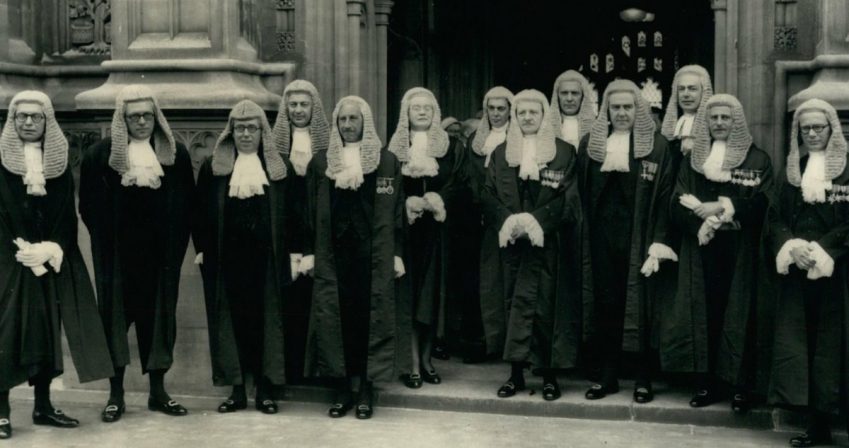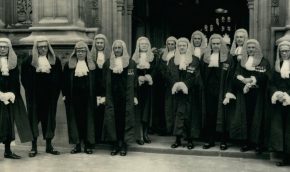First woman to sit as Recorder for a jury trial
Women in Law
- Introduction
- Timeline
- Joyce Bamford-Addo
- Marion Billson
- Jill Black
- Elizabeth Butler-Sloss
- Sue Carr
- Eugenia Charles
- Lynda Clark
- Freda Corbet
- Coomee Rustom Dantra
- Leeona Dorrian
- Heather Hallett
- Frene Ginwala
- Rosalyn Higgins
- Daw Phar Hmee
- Lim Beng Hong
- Dorothy Knight Dix
- Sara Lawson
- Elizabeth Lane
- Theodora Llewelyn Davies
- Gladys Ramsarran
- Lucy See
- Evelyn Sharp
- Victoria Sharp
- Ingrid Simler
- Teo Soon Kim
- Ivy Williams
- The Significance of the Sex Disqualification (Removal) Act 1919
- Podcasts
Home › Women in Law › Our Women › Dorothy Knight Dix
Dorothy Knight Dix QC
Admitted 1931, Called 1934
In 1946, due to the illness of the Recorder of Deal, Dorothy Knight Dix sat as Deputy Recorder at the Dover July Quarter Sessions. This made legal history for it was the first time a woman had the power to summon a jury and send a criminal to penal servitude for life. When the courtroom ceiling collapsed many saw this as an ill omen forewarning of the perils of a female judiciary.
Dorothy Knight Dix’s career was a triumph of perseverance. She was born in 1909 daughter of a city merchant, went to school in Hampstead and thence to University College London where she took a first in English in 1931, and then to the Inner Temple from where she was called to the Bar in 1934.
She gained a place in chambers but found life there hard and often had to resort to textbook writing such as The Law Relating to Competitive Trading, 1946 to supplement a meagre income.


Apr. 04, 1957 - New Q.C.'s Sworn In At House Of Lords: 47-year old Miss Dorothy Knight Dix was among the newly appointed Queen's Counsels, who were sworn in today at the House of Lords. She was called to the Bar in 1934 and in 1946 was sworn in as the first woman barrister to sit as Recorder. Keystone Photo Shows:- New Q.C.'s seen leaving the House of Lords after today's Swearing in. Keystone Press / Alamy Stock Photo
She received some work via the South Eastern Circuit and at the Central Criminal Court. She got the chance to defend a murderer as leader in R v Hammond 1941. She became Christmas Humphrey’s Assistant Recorder at Deal in January 1946 when she was just 36 and had been at the Bar for only 11 years.
She subsequently served in the same capacity at Margate which may have afforded rather more opportunities to demonstrate judicial qualities, and her practice was big enough for her to be made a QC in 1957.
On the death of her husband Bentley Waddy QC in 1956 she took over as head of his chambers.
She served on the Bar Council and on a mental health review tribunal and acted as deputy chairman of the South- East London Quarter Sessions and chairman of the West Kent National Assistance Appeal Tribunal. However when the LCD officials put her name forward in the short list for a metropolitan stipendiary vacancy in 1961 it was mostly because the vacancy was caused by the retirement of the only woman on that bench and it was felt that the Lord Chancellor should have the opportunity to replace her with another woman if he wished. However, she was briskly dismissed by the Attorney-General as,
despite her silk her practice was not equal to some of the male candidates, nor had her work as assistant recorder earned the sort of praise given to Lane. All in all, Coldstream summed up,
I do not think she would be a safe appointment. I am sorry to reach this conclusion as I think she is a worthy lady and certainly conscientious.
In 1968 she was made a County Court Judge a sadly short-lived one for she died in January 1970.